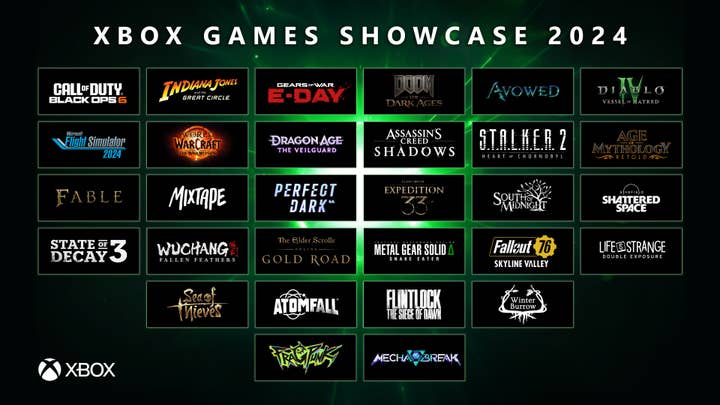Despite the absence of E3, Microsoft emerged as the clear winner | Analysis
One lasting E3 tradition that persists even after the event's demise is the analysis of winners and losers from the showcase.
This process, though subjective and at times erroneous, has historically influenced the gaming landscape. Despite E3's many flaws, its timing was impeccable, coinciding with the period when gaming companies finalize their holiday lineups and start unveiling the following year's major releases. With or without E3, early June remains a crucial period for the industry.
Thus, this period provides a glimpse into the strategies of market leaders and hints at trends for the upcoming 12 to 18 months. This year, however, there is a clear frontrunner: Microsoft.
Microsoft emerged victorious in the absence of E3, undeniably leading in every measurable way. The company’s game announcements and presentations drew significant attention and praise, distinguishing themselves from rivals. This is possibly the first instance since the Xbox 360 era where Microsoft’s software lineup surpasses competitors by a considerable margin, boosting public perception of Xbox, which had been struggling recently, and bolstering internal confidence.
However, there is an important caveat: Sony seemed to have prepared for a different type of event entirely. While Microsoft delivered an impressive lineup of fan-favorite titles in a manner reminiscent of a peak E3 show, Sony’s contributions felt more like a routine livestream squeezed among larger events. Nintendo’s upcoming Direct event is expected to follow a similarly subdued approach.
This disparity in presentation creates a visibility issue. Microsoft took the showcase very seriously, revealing a significant part of its future projects. In contrast, it’s unclear how much of Sony’s upcoming lineup has been actually disclosed and what Nintendo’s plans entail. This echoes the broader discord that led to E3's downfall, where conflicting visions prevented any consensus on what the event should achieve.
Despite these challenges, Microsoft's showcase was remarkable. Based on what was unveiled, Xbox is expected to dominate the software market for the next 12 to 18 months. This success suggests that Microsoft’s hefty investments in acquisitions are finally proving fruitful. While this single event won't completely reverse the negative perceptions caused by past studio closures and controversial statements, it signals that Xbox is ready to compete seriously with PlayStation once again, in ways that matter profoundly to gamers.
It’s possible that Sony has more significant announcements, particularly for 2025. However, this year seems to be underwhelming, despite the potential successes of titles like Helldivers 2 and the charm of Astro Bot.

The fragmented nature of these summer events leaves no clear guidelines on what should be announced. While Microsoft discussed new console versions, Sony kept silent about its anticipated Pro model, and Nintendo’s Direct event is not expected to mention the Switch successor.
In E3’s prime, hardware announcements were standard, especially for Sony, although Nintendo has always been unpredictable in this regard. Sony's decision to lead with the hero shooter Concord seems questionable, especially in light of Microsoft’s string of high-profile announcements. This approach suggests Sony’s major franchises and new projects from its top studios might still be too early in development for showcasing, possibly indicating a quiet 2025 release schedule, which could harm the company’s market-leading position. This strategic choice contrasts sharply with Microsoft's flurry of major titles, highlighting Sony's relatively weaker pipeline.
It is possible that Sony may decide to unveil several new games alongside the PS5 Pro during an event later this year. Potential venues for such an announcement could be Gamescom in late August or the Tokyo Game Show in September. Alternatively, the flexibility of modern digital events allows Sony to choose any date that suits its schedule, a luxury it didn't have in the past.
These differing strategies highlight the varied approaches of the top three gaming platform holders regarding what a post-E3 landscape should look like. Notably, significant players like Apple and Google were largely absent from E3, aside from a brief mention at Apple's WWDC event. It's perplexing that these mobile platform giants have not more aggressively pursued their own game showcases.
Nonetheless, the excitement reminiscent of E3 has been palpable over the past two weeks. Despite my distant vantage point, it's clear that consumer interest in these events remains strong. Many publishers have doubled down on using these showcases for major announcements, a tactic that had somewhat waned in recent years. The calendar's value as a prime opportunity to highlight upcoming releases remains, but the industry leaders are adopting very different methods.
Observing how this year's events influence corporate strategies moving forward will be intriguing. While Sony leads the market, the stark contrast between the public reception of its showcase and Microsoft's should prompt a reevaluation of its approach. Despite not being a major blunder, this rare moment of appearing weaker than its competitors should be a wake-up call for Sony. They must avoid reinforcing this perception in subsequent events. Although PlayStation holds a lead, it faces a formidable rival in Microsoft, which boasts nearly $100 billion in studio and publisher acquisitions. Sony cannot presume it will continue to dictate the timing and manner of announcements in the future.
The summer showcase season is a competitive arena where every major company needs to excel. Perhaps this renewed spirit of competition among industry giants will eventually shape a coherent successor to the traditional E3 event.